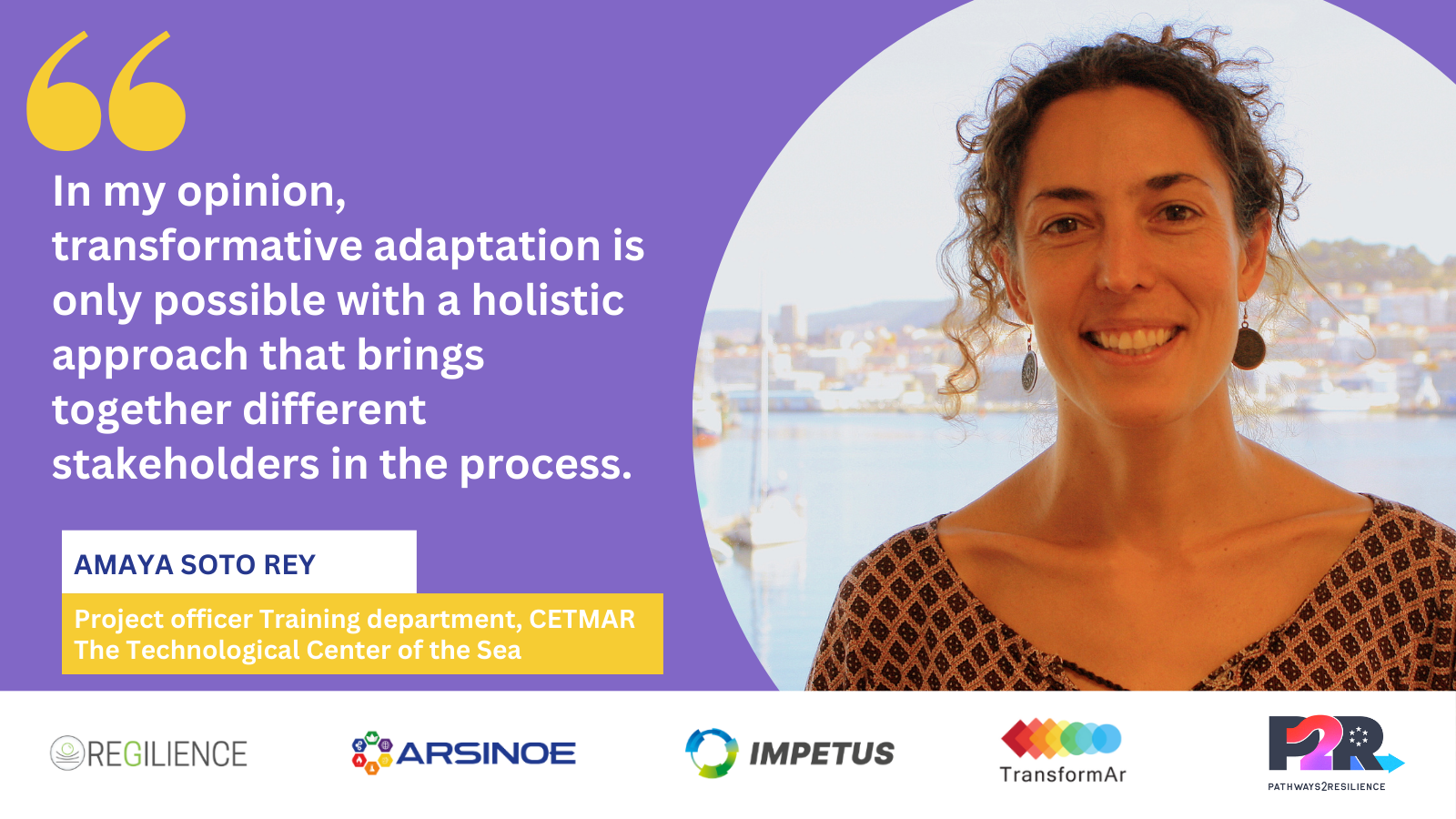March is the month dedicated to celebrating the achievements and contributions of women worldwide. In alignment with this spirit, REGILIENCE, Arsinoe, IMPETUS, TransformAr and Pathways2Resilience have jointly engaged in insightful conversations with inspiring women actively involved in crafting resilience and adaptation solutions to address the inevitable challenges posed by Climate Change. Discover their journey!
How is your expertise and background concretely reflected in your role in TransformAr project?
My background is in marine sciences and international cooperation for development projects. All of them have entailed collaboration with multiple partners and incorporated sustainability and climate change mitigation or adaptation components. In TransformAr, I am responsible for facilitating the implementation of a demonstrator in Galicia to enhance climate change adaptation. This involves navigating the socio-environmental landscape, encompassing scientific expertise, addressing industry needs and perspectives, and exploring administrative possibilities.
My role also entails showcasing the results of other demonstrators and project activities at the regional level and vice versa, as well as disseminating information in various languages and across different communication levels. Effective communication is a crucial aspect of my responsibilities.
What are the 3 main drivers that have motivated and still motivate you to contribute in the field of climate science?
I have always been interested in environmental and social sciences. Oceanography, in particular, fascinates me, and climate change inherently englobes all that. The three driving forces behind my passion are social justice, a deeper comprehension of the underlying science behind climate change, and, last but not least, the desire to continue enjoying nature, in all its beauty and splendour.
What is the biggest challenge you faced in your career, notably as a woman in your field of expertise?
As a woman and a mother, I would say that the greatest challenge lies in managing time while reconciling work and family life. I believe this is a field with significant potential for improvement if we aim for an evolved society where consumption is done responsibly, and people do not lead hurried lives. Rushing does not facilitate the reduction of the carbon footprint nor effective and constructive communication, both essential for enabling a fair transition.
According to you, what is currently the biggest gap we face to adapt efficiently to climate change?
Building on my earlier response, I guess that the biggest gap is the frantic pace of life and productivity—the incessant push to produce more, better, and with a constant spotlight. We should be able to know what are rooting for and where are we headed. I’ve noticed that societal expectations support a consumption model centred around more and more flaunting products and achievements. This drives us into a hectic rhythm, making it arduous to adopt environmentally friendly habits, consuming in a more responsible manner and, in essence, becoming cleaner, greener and bluer.
The World Meteorological Organization highlighted that the climate crisis is far from “gender neutral” and gender-sensitive information and services are needed. Women are at higher risk due to the adverse effects of climate change, hence both men and women must join efforts to narrow this gap.
How do you plan to contribute to reduce this gap, or continue to contribute to make our societies more resilient?
It is a good question because there is a lot to do!!
In my opinion, transformative adaptation is only possible with a holistic approach that brings together different stakeholders in the process, promoting interaction, agreements and concerted action towards an improved situation. In this regard, strengthening networks is key, with a special mention to women associations and individuals to effectively convey their messages. For instance, within the fisheries and aquaculture productive sectors, there are still existing structures that make it difficult for a woman to take on leadership roles.
I also think we need to promote awareness on “Rs” – Reduce, Reuse and Recycle – and “Ws” – better manage Water, Waste and Way of consumption.
Finally, thorough and professional analysis should be made to avoid gender bias, discrimination and sexism in all initiatives, from regulations, strategies and projects, to language, and everyday actions.
These three points are a significant part of my plan, but luckily, I am not alone in this boat, and I’m hopeful for a lot of support 🙂




